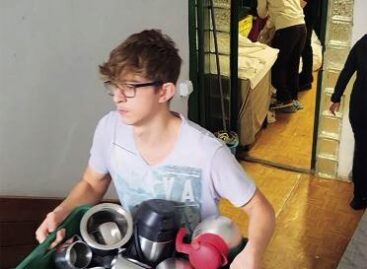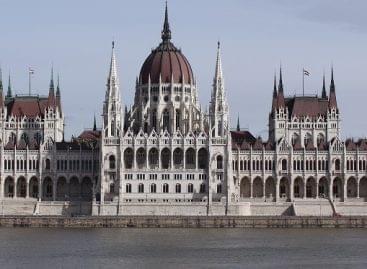In-store technological solutions help to make shopping an experience
It was around 2010 that supermarket chains started opening units with unique design and convenience stores set their feet in city centres.
This trend started because well-off customers demand the same level of shopping experience from a grocery store as for instance from a premium restaurant. Bálint Török, the head of shop solutions at Wanzl Magyarország Kft., told our magazine that about 1-2 percent of all grocery stores can offer a unique furnishing and their own world of experiences to customers, but the same ratio is 8-10 percent in the supermarket segment. His experience is that in this domain certain stores of Hungarian-owned retail chains lead the way, because the interior design of stores operated by international chains is limited by their standard design manual. In this respect one of the most important factors is the geographical location of stores and the type of customers they can reach. Convenience stores’ main interior design expectations are related to space use: they try to create ‘separate worlds’ in-store for the various product groups. Store ‘transparency’ is another expectation, this means that customers have to be able to find what they are looking for easily upon entering the store. Round shapes and curves, white metal and wooden structures are characteristic of this store type – they try to avoid hypermarket-like long corridors. Lighter and more elegant shelving systems are used and from shopping trolleys the plastic ones are preferred. Mr Török added that for a store design and furnishing company it is very important to have in-depth knowledge of the owner, the customers and the store’s location. In his view the premium quality upgrading of a store can result in 20-percent or even bigger increase in turnover. According to Bizerba sales manager Pál Tóth, the right scales must be found for each store type. Even their cheapest type, BCII is capable of printing, storing various texts and has a pricing and inventory management system. However, constantly changing requirements can only be met with PC-based scales: Bizerba developed PC-based scales for which users can write their own apps, in order to create the tool best-suited for stores’ diverse needs quickly and cost-efficiently. Mr Tóth called attention to the fact that many stores still use scales that don’t fit their profile and this creates dissonance in shoppers, weakening their loyalty. Lajos Tarnóczi, retail segment manager with Mettler Toledo reckons that small shops don’t really care about using innovative solutions. Even premium stores, hyper- and supermarkets tend to use modern tools more as status symbols, without making the most of their special and innovative functions. Mettler Toledo scales fit perfectly into every environment, they can be integrated into systems, they offer multimedia information providing and they have sales boosting features such as cross selling or couponing. The company’s UC EVO Line scales come with special software that support partners’ databases and promotions. What is more, after Spar Austria started using METTLER scales, sales of certain premium products increased by 20-30 percent, thanks to the scales’ special features. György Béki, the brand manager of Thermotechnika Kft. informed Trade magazin about how cooling technology products can contribute to increasing sales: for instance a decorative counter can really call attention to the products displayed in it. His experience is that recent partner demands include the greatest transparency and space utilisation possible. Energy saving and reliable solutions are sought after and retailers also want these solutions to be stylish and long lasting. By purchasing energy saving cooling solutions (heat recovery, fan-coil systems, LED lighting, fridges with doors) companies can cut their electricity costs by 30-40 percent.
Related news
Related news
Márton Nagy: tourism in Hungary is divisive
Hungarian tourism is booming, Ferihegy is the fastest growing airport…
Read more >





